Creating action for safe, dignified migration
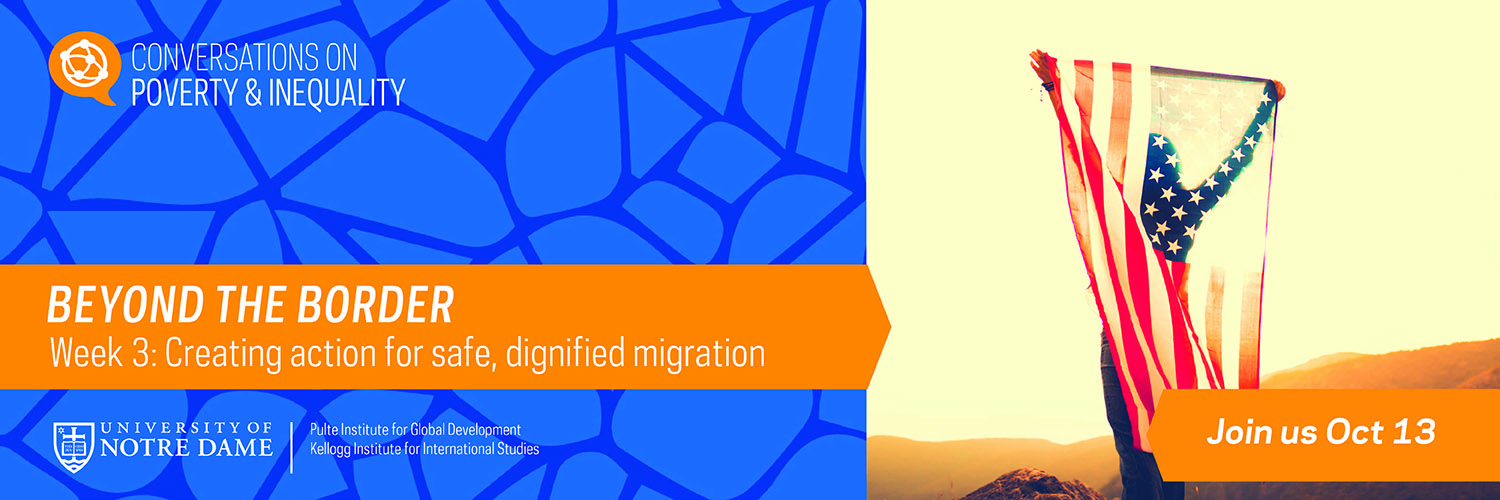
Our final session of the series will explore what the United States, businesses, the church, and each of us as global citizens can do to create safe, dignified paths for migrants.
Meet the Guest: Michael Camilleri
Michael Camilleri
Senior Advisor to the USAID Administrator
Executive Director of USAID’s Northern Triangle Task Force
United States Agency for International Development (USAID)
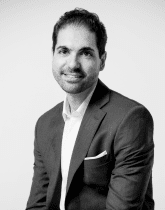
Michael Camilleri was most recently director of the Peter D. Bell Rule of Law Program at the Inter-American Dialogue. From 2012–2017, he served in the Obama-Biden Administration as the Western Hemisphere advisor on the Secretary of State’s Policy Planning Staff and as director for Andean Affairs at the National Security Council. Earlier in his career he worked as a human rights lawyer at the Organization of American States, the Center for Justice and International Law, and with a coalition of civil society organizations in Guatemala.
Camilleri is a former term member of the Council on Foreign Relations, and his analysis has appeared in Foreign Affairs, Foreign Policy, The New York Times, and The Washington Post. A Maltese immigrant raised in Minnesota, he holds a B.A. in history from the University of Notre Dame and a J.D. from Harvard Law School.
Meet the Guest: Dr. Juan José Daboub
Dr. Juan José Daboub
President, ThinkHUGE
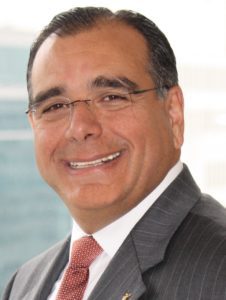
Dr. Juan José Daboub, Ph.D., is the president of HUGE (Honduras, USA, Guatemala, El Salvador) Business and Investment Council; chairman and CEO of the Daboub Partnership; and the founding CEO of the Global Adaptation Institute. Previously, Dr. Daboub was the chair of the World Economic Forum’s Global Agenda Council on Climate Change (2012–2014), vice-chairman of The Dorado Group, LLC (2010–2020), and has taught at Princeton University.
As managing director of the World Bank, from 2006–2010, Dr. Daboub oversaw operations in 110 countries in Africa, the Middle East, East Asia, and Latin America. He was also responsible for the oversight of the Human Development and Sustainable Development Networks, the Information Systems Group, the World Bank Institute, the Department of Institutional Integrity, and the Arab World Initiative.
From 1999–2004, Dr. Daboub served concurrently as El Salvador’s Minister of Finance and as Chief of Staff to the President. In these high-profile dual roles, Dr. Daboub helped to navigate his native country through several regional economic challenges including securing and sustaining El Salvador’s investment grade rating, “dollarizing” the economy, and completing a Free Trade Agreement with the United States. During this period, he also oversaw the emergency reconstruction of El Salvador after two major earthquakes in 2001.
Dr. Daboub holds a bachelor of science, master of science, and a Ph.D. in Industrial Engineering from North Carolina State University. He is a member of several boards of directors and/or advisory boards of both public and private industries and non-for-profits in the United States, Europe, the Middle East, and Latin America, including two SPACs and a Fortune 500 company.
Meet the Faculty: Rev. Daniel Groody, C.S.C., Ph.D. '86
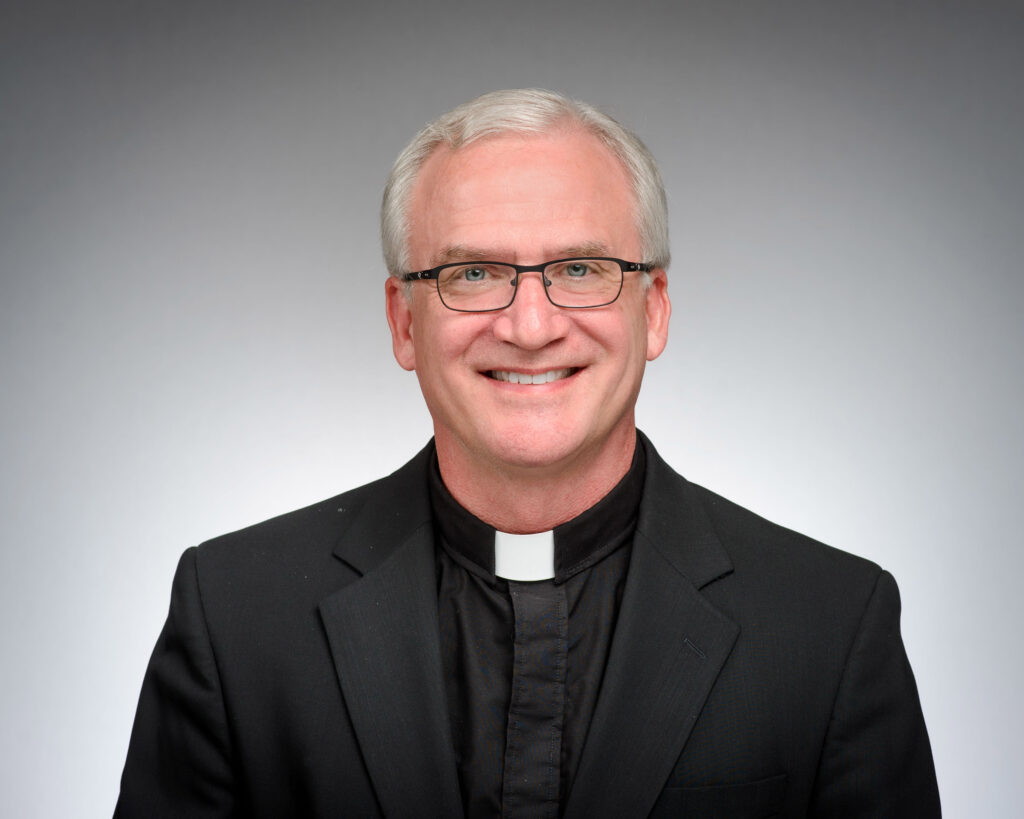
Rev. Daniel G. Groody, C.S.C., Ph.D. ’86 serves as vice president and associate provost for undergraduate education at the University of Notre Dame. He is also a professor of theology and global affairs, a trustee, and a fellow at the university.
Fr. Groody has written and contributed to several books and articles. His scholarship delves into the intersection of theology and migration, offering insights into the human experience of displacement and the role of faith in addressing social and global challenges. His book, A Theology of Migration: The Bodies of Refugees and the Body of Christ, received first-place honors from the Catholic Press Association.
Internationally recognized as an expert on migration and refugee issues, and drawing on research and speaking engagements in more than 50 countries, Father Groody has collaborated with institutions such as the U.S. Congress, the U.S. Conference of Catholic Bishops, the World Council of Churches, the Vatican, and the United Nations. He has also produced several films and documentaries, including Dying to Live: A Migrant’s Journey.
His engagement with policymakers, scholars and religious leaders underscores the integral relationship among the Christian faith, global justice, the dignity of the human person, and theological reflection. In addition to his research, scholarship, and teaching, Fr. Groody is a former downhill ski racer, loves woodworking, and once rode a bicycle from Portland, Maine, to Portland, Oregon.
Meet the Guest: Taiyyeba Safri Skomra
Taiyyeba Safri Skomra
Partner & Certified Specialist
Stone Grzegorek & Gonzalez LLP
Taiyyeba Safri Skomra is a partner at Stone Grzegorek & Gonzalez LLP. She was recognized as a “Rising Star” by Super Lawyers for the years 2010–2012, and 2015–2018, a designation given to no more than 2.5% of lawyers in the state of California.
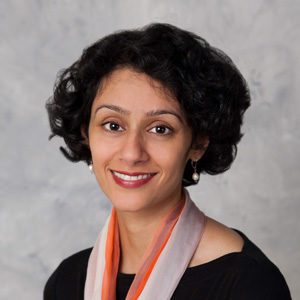
Ms. Skomra has great depth of experience in family-based immigration, immigration litigation, and the analysis of the immigration consequences of criminal activity. She views the field of immigration law as an opportunity to combine her passions for women’s and migrants’ human rights. Her first contact with immigration law was as the daughter of immigrants. In 2001, she began assisting pro bono clients with filing self-petitions under the Violence Against Women Act. She continued her pro bono work throughout law school at the University of Washington in Seattle, where she served on the board of the Immigrant Families Advocacy Project.
Ms. Skomra earned her bachelor’s degree in international relations from Mount Holyoke College and her J.D. from the University of Washington School of Law.
Promoting Human Flourishing in Central America
Presented by Keough School of Global Affairs
Researchers, practitioners, and policymakers explore how policymakers and civil society organizations can continue to work together to curb the migration crisis and support a vision of human flourishing in Central America. This discussion builds on research from the Keough School’s Pulte Institute for Global Development at the University of Notre Dame.
Panelists included:
- U.S. Representative Michael McCaul (Texas)
- Katherine Dueholm, Acting Deputy Assistant Secretary for Mexico and Central America, U.S. Department of State
- Clara Villatoro, Master of Global Affairs Student, Keough School of Global Affairs; Research Assistant, Pulte Institute for Global Development
- Tom Hare, Senior Researcher, Pulte Institute for Global Development
- María Estela Rivero Fuentes, SHARE MEL-KM Director, Pulte Institute for Global Development
- Natalia María Ortíz Barrientos, Board President and Research Associate, Instituto Centroamericano de Estudios Sociales y Desarrollo Guatemala
- Daniel F. Runde, Senior Vice President, William A. Schreyer Chair and Director, Project on Prosperity and Development, Center for Strategic & International Studies
The discussion was moderated by Maura Policelli, Executive Director of the Keough School of Global Affairs Washington Office and Ray Offenheiser, William J. Pulte Director of the Pulte Institute for Global Development and Associate Professor of the Practice for the Keough School of Global Affairs.
Additional Resources
- Generating Hope: An interview with Michael Camilleri
- Generating Hope: USAID in El Salvador, Guatemala, and Honduras
- FACT SHEET: Strategy to Address the Root Causes of Migration in Central America
- US Foreign Aid to the Northern Triangle 2014-2019: Promoting Success by Learning from the Past (Wilson Center Report)
- An Overview of the Central American Regional Security Initiative to Violence and Strengthen Institutes in the Northern Triangle of Central America (Report)
- Title 42 Ruling: Title 42 is part of U.S. health law, which prohibits entry into the United States when the CDC believes “there is a serious danger to the introduction of [a communicable] disease into the United States.” Essentially, depending on the health situation, the U.S. is able to prohibit entry to anyone except U.S. citizens, lawful permanent residents, and their spouses and children.
- Proposed procedures for credible fear screening and consideration of asylum, withholding of removal, and CAT protection claims by asylum officers.
View the Live Event
Wednesday, October 13, 2021 1:00 pm
Subscribe to the ThinkND podcast on Apple, Spotify, or Google.
Featured Speakers:
- Michael Camilleri, Senior Advisor to the USAID Administrator and Executive Director of USAID’s Northern Triangle Task Force, United States Agency for International Development (USAID)
- Dr. Juan José Daboub, President, ThinkHUGE
- Rev. Daniel Groody, C.S.C, Vice President and Associate Provost, Associate Professor of Theology and Global Affairs, University of Notre Dame
- Taiyyeba Safri Skomra, Partner & Certified Specialist, Stone Grzegorek & Gonzalez LLP
